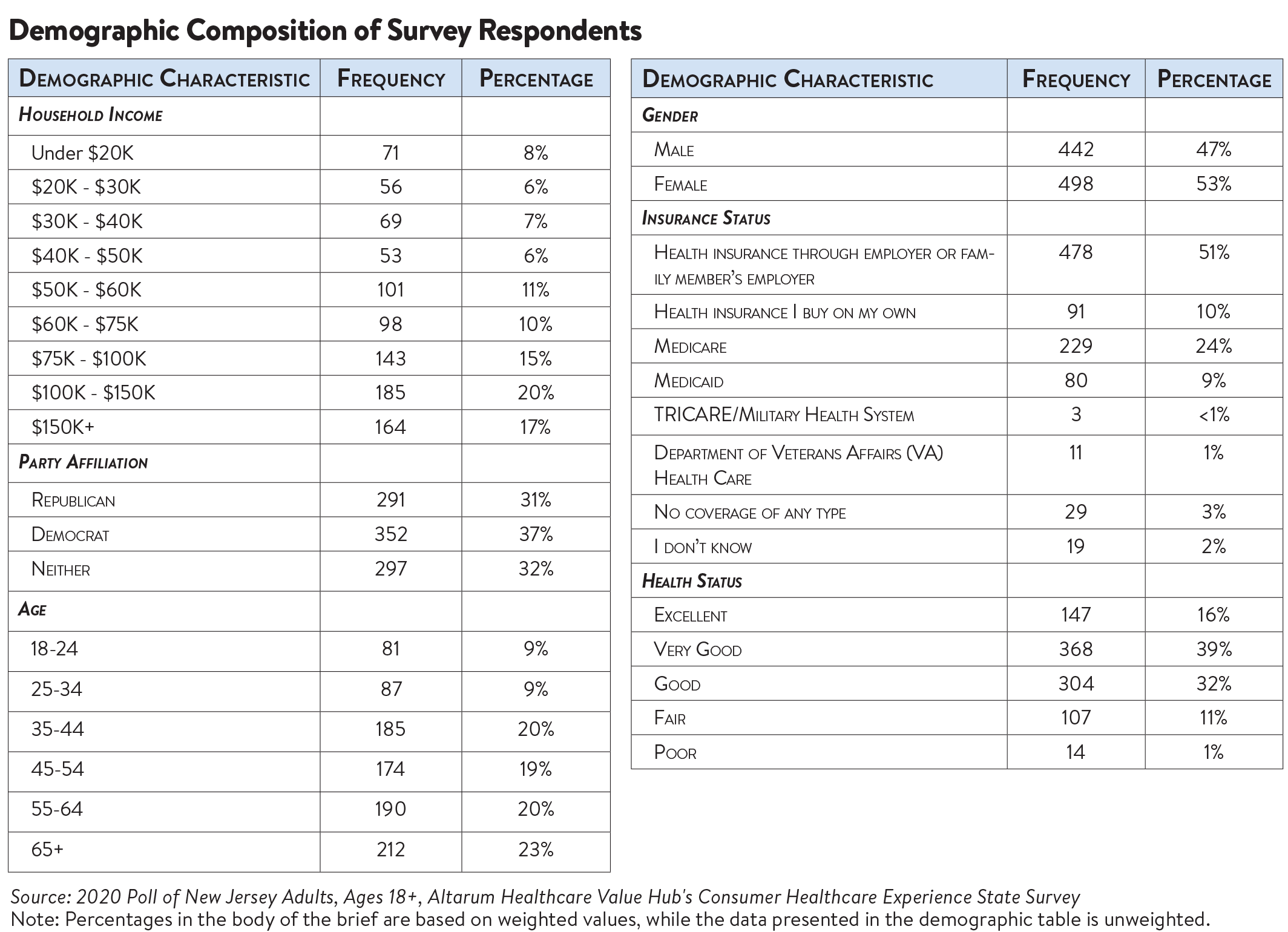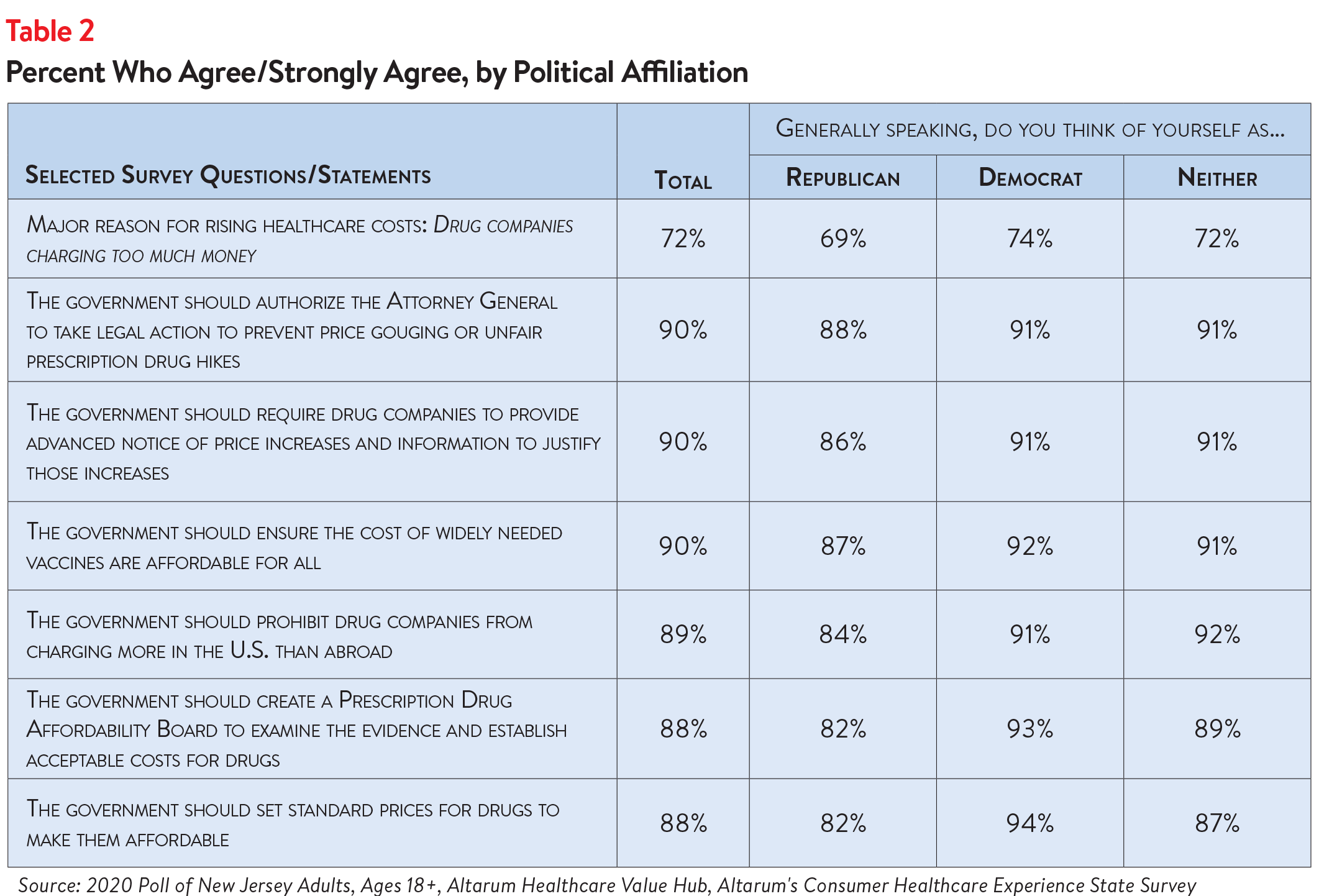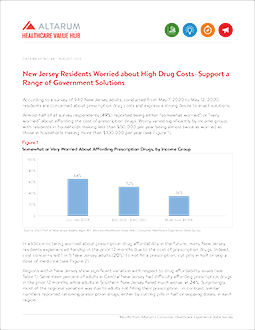New Jersey Residents Worried about High Drug Costs - Support a Range of Government Solutions
According to a survey of 940 New Jersey adults, conducted from May 7, 2020 to May 12, 2020, residents are concerned about prescription drug costs and express a strong desire to enact solutions.
Almost half of all survey respondents (49%) reported being either “somewhat worried” or “very worried” about affording the cost of prescription drugs. Worry varied significantly by income group, with residents in households making less than $50,000 per year being almost twice as worried as those in households making more than $100,000 per year (see Figure 1).
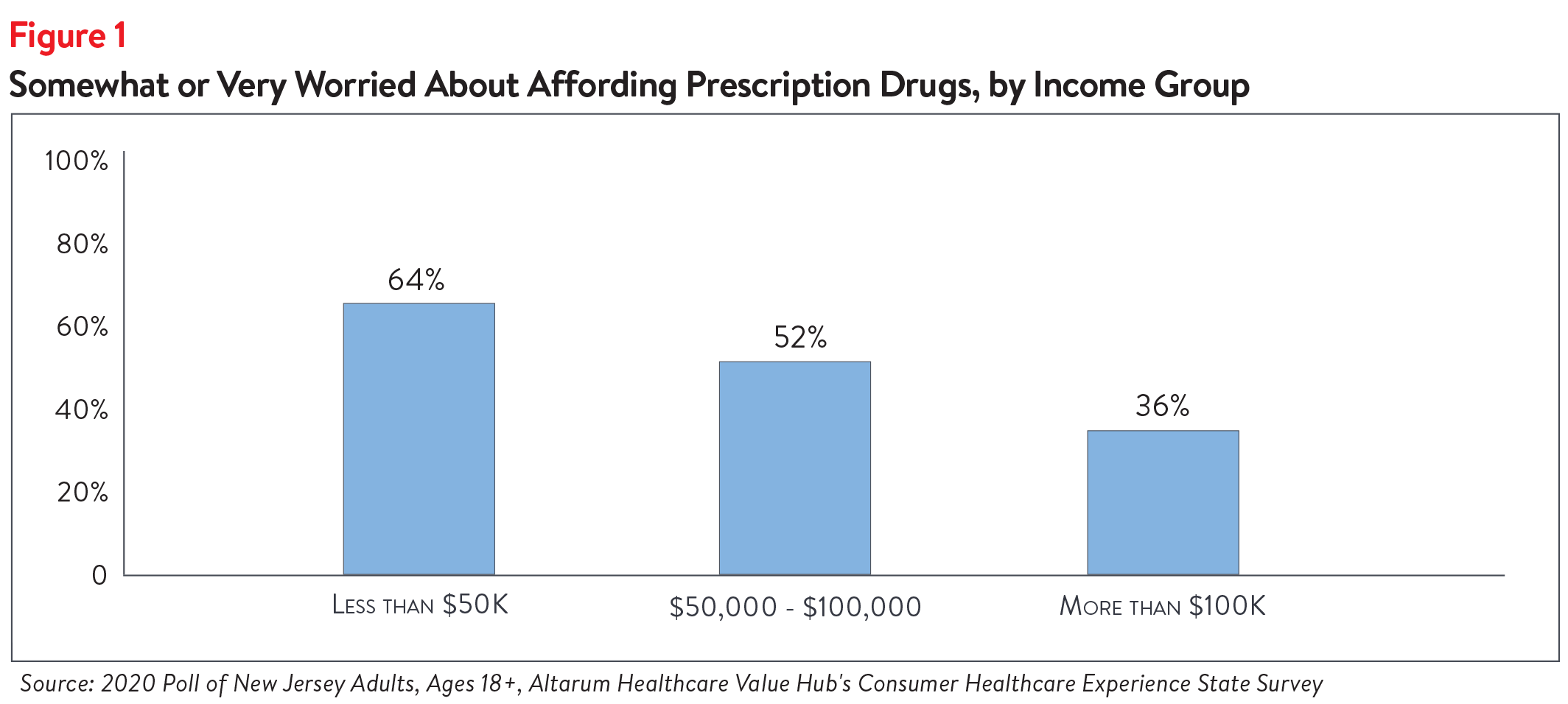
In addition to being worried about prescription drug affordability in the future, many New Jersey residents experienced harship in the prior 12 months due to the cost of prescription drugs. Indeed, cost concerns led 1 in 5 New Jersey adults (20%) to not fill a prescription, cut pills in half or skip a dose of medicine (see Figure 2).
Regions within New Jersey show significant variation with respect to drug affordability issues (see Table 1). Seventeen percent of adults in Central New Jersey had difficulty affording prescription drugs in the prior 12 months, while adults in Southern New Jersey fared much worse, at 24%. Surprisingly, most of the regional variation was due to adults not filling their prescription—in contrast, similar numbers reported rationing prescription drugs, either by cutting pills in half or skipping doses, in each region.
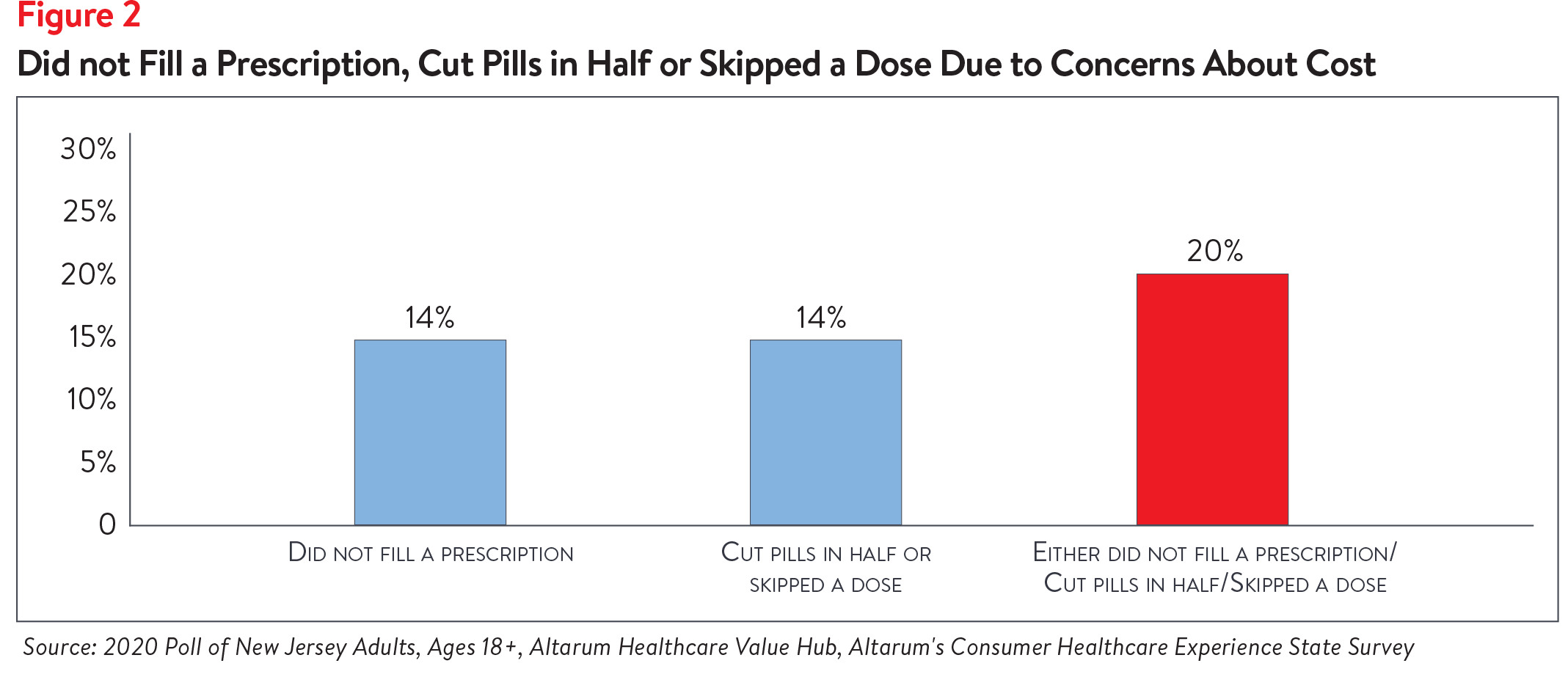
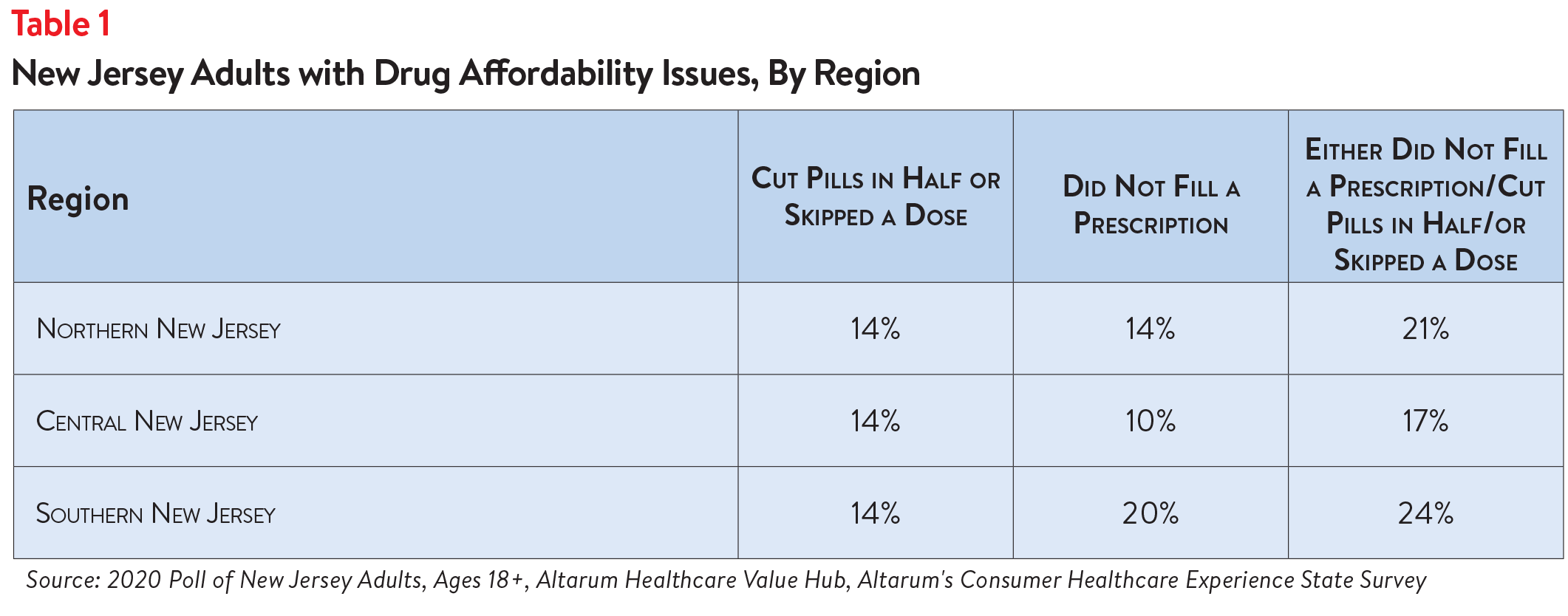
These hardships have a disproportionate impact on lower income households. As Figure 3 shows, households making less than $50,000 per year are three times as likely to have rationed their prescription medicines (by not filling a prescription, cutting pills in half or skipping a dose of medicine) as households making more than $100,000 per year. Moreover, these hardships are alarmingly prevalent in middle income households.
When given more than 20 options, the option cited most frequently as being a "major reason" for high healthcare costs was “drug companies charging too much money:”
- 72%—Drug companies charging too much money
- 68%—Insurance companies charging too much money
- 67%—Hospitals charging too much money
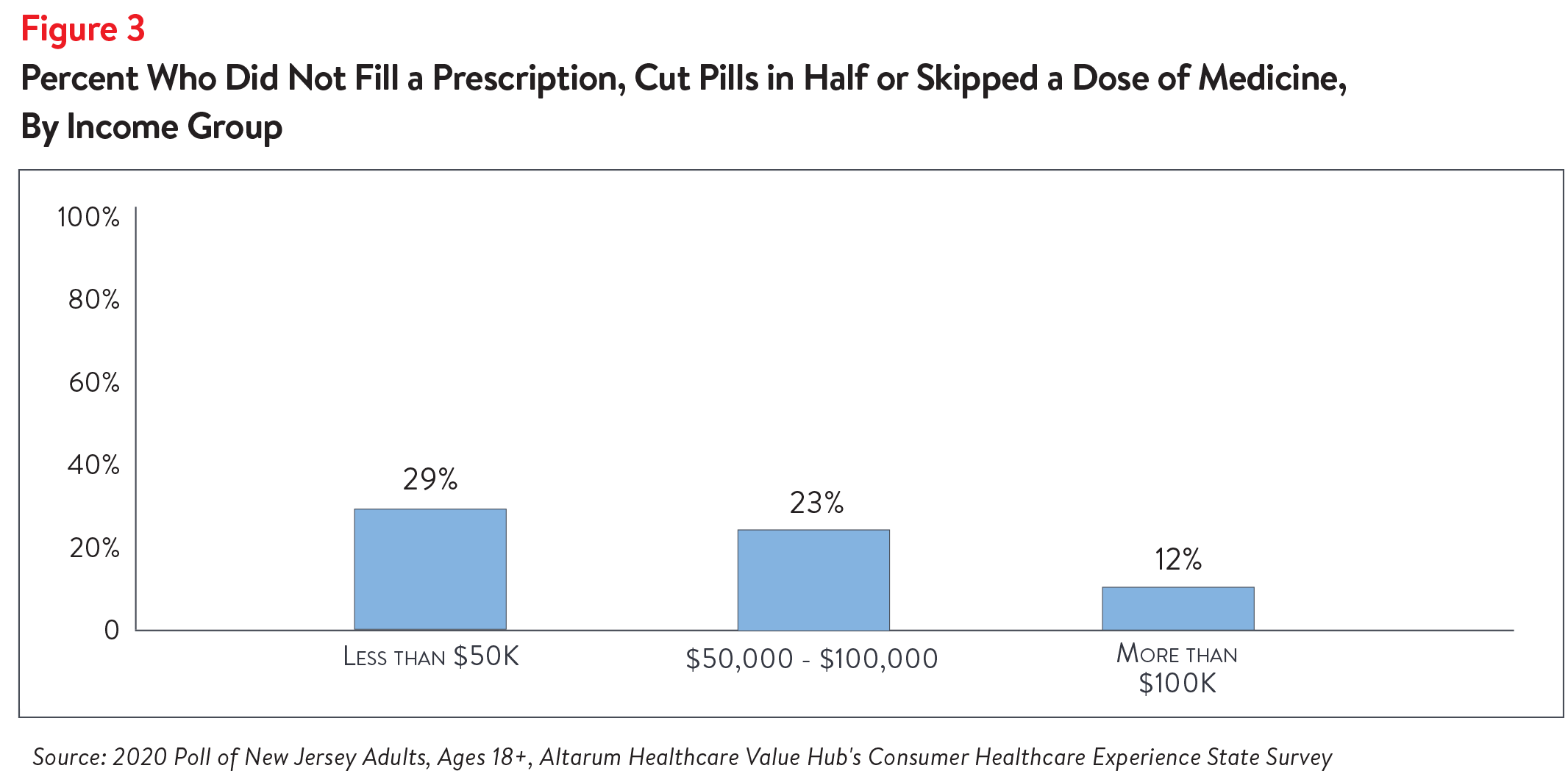
When it comes to tackling high drug costs, respondents endorsed a number of strategies:
- 90%—Authorize the Attorney General to take legal action to prevent price gouging or unfair prescription drug price hikes
- 90%—Ensure the cost of widely needed vaccines are affordable for all
- 90%—Require drug companies to provide advanced notice of price increases and information to justify those increases
- 89%—Prohibit drug companies from charging more in the U.S. than abroad
- 88%—Create a Prescription Drug Affordability Board to examine the evidence and establish acceptable costs for drugs
- 88%—Set standard prices for drugs to make them affordable
While New Jersey residents are united in calling for the government to address high drug costs, they also see a role for themselves:
- 72% would switch from a brand name to a generic if given the option
- 56% have tried to find out the cost of a drug beforehand
In light of these prescription drug cost concerns—as well as concerns about high healthcare costs generally—it is not surprising that New Jersey adults are extremely dissatisfied with the health system:
- Overall, 72% agreed or strongly agreed that “the system needs to change,”
- While just 29% agreed or strongly agreed that “we have a great healthcare system in the U.S.”
There is remarkably high support for government action on drug costs regardless of the respondents' political affiliation (see Table 2).
Methodology
Altarum’s Consumer Healthcare Experience State Survey (CHESS) is designed to elicit respondents’ unbiased views on a wide range of health system issues, including confidence using the health system, financial burden and views on fixes that might be needed.
The survey used a web panel from Dynata with a demographically balanced sample of approximately 1,000 respondents who live in New Jersey. The survey was conducted only in English and restricted to adults ages 18 and older. Respondents who finished the survey in less than half the median time were excluded from the final sample, leaving 940 cases for analysis. After the exclusions, the demographic composition of respondents was as follows.
